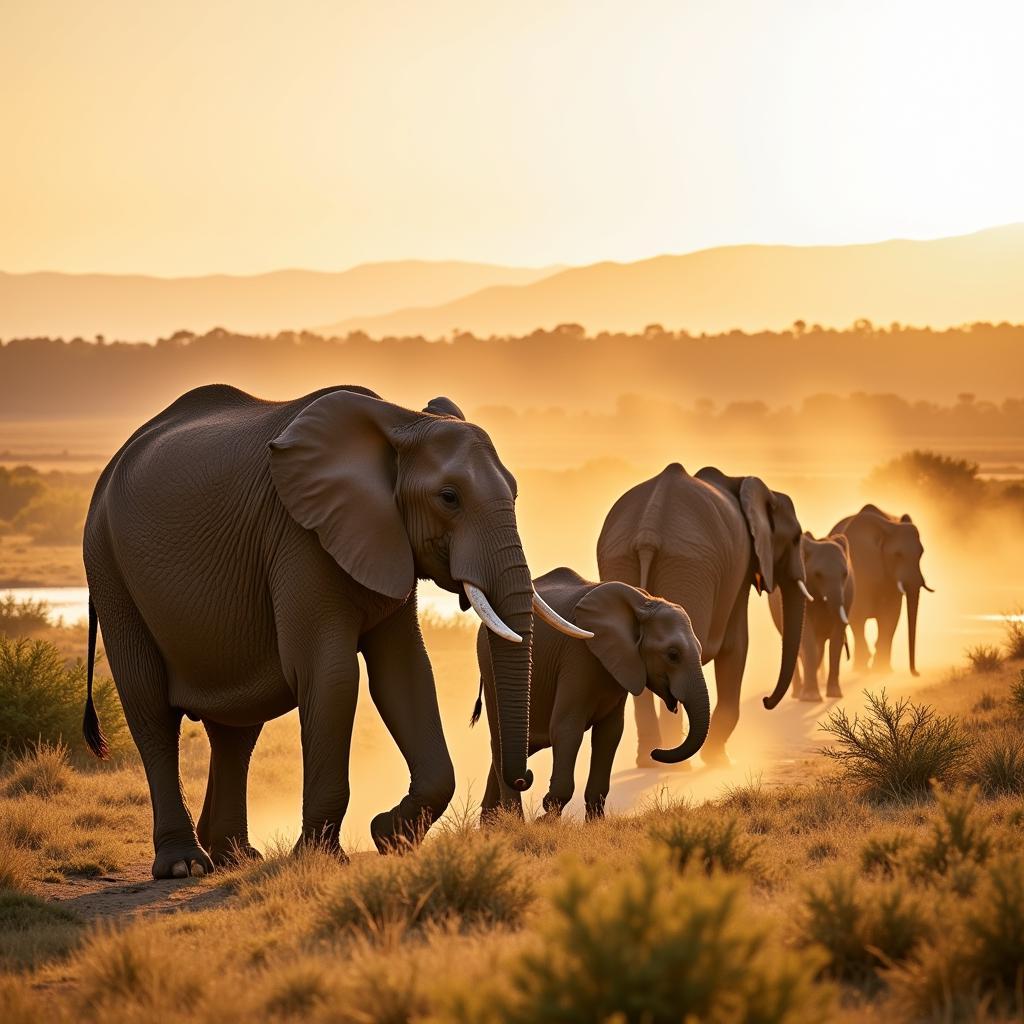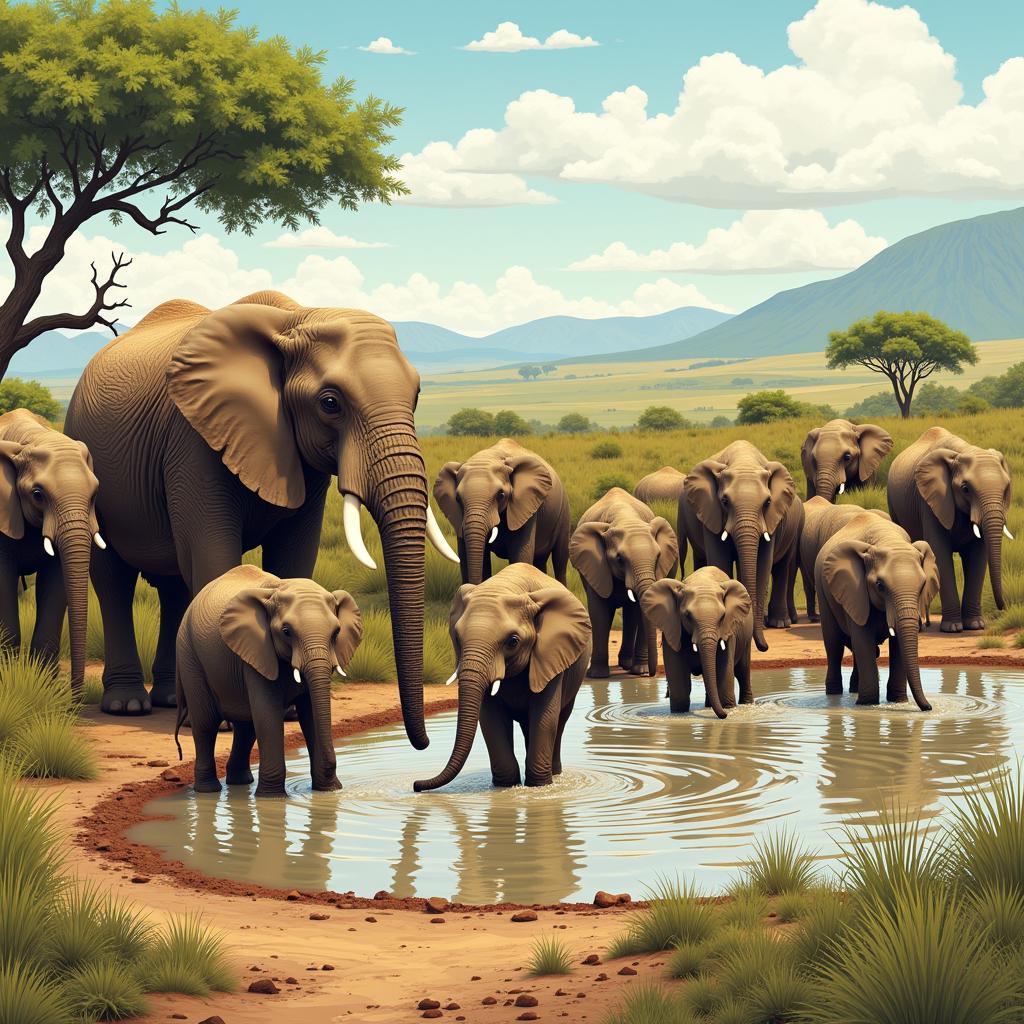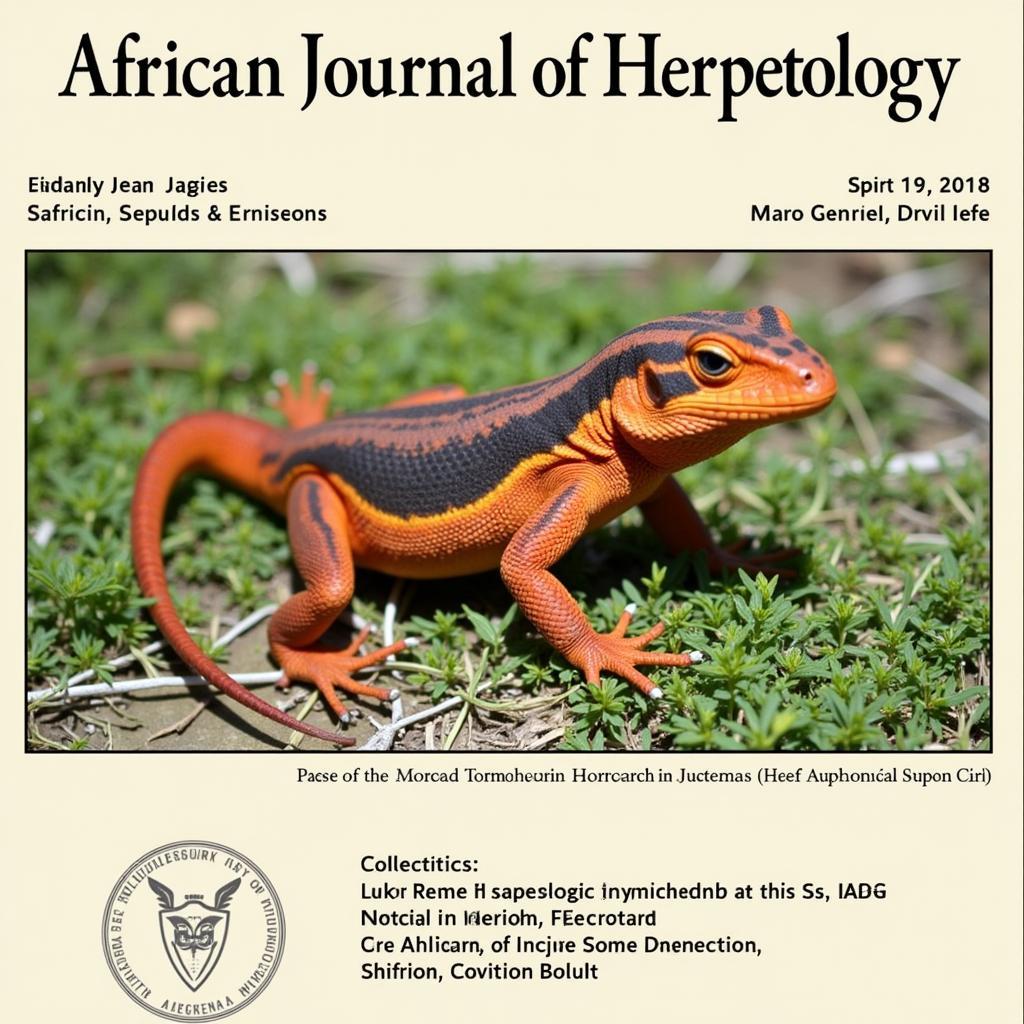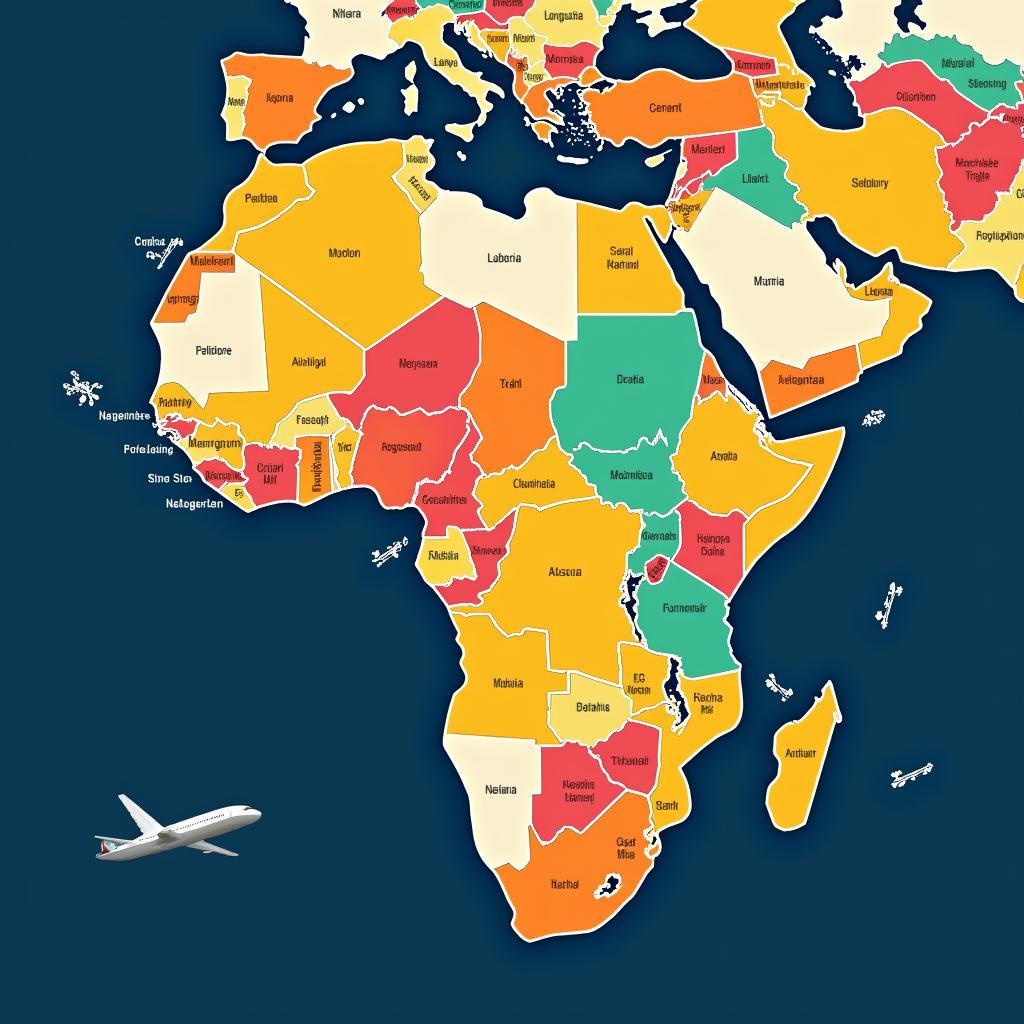The Incredible Journey of the African Elephant Migration for Kids
African elephants are the largest land mammals on Earth! These gentle giants embark on incredible journeys called migrations, moving across vast distances in search of food and water. Imagine walking for months, following ancient paths that their ancestors have used for centuries. That’s what it’s like to be part of an African elephant migration!
Why do African Elephants Migrate?
African elephants migrate for one main reason: survival! These massive herbivores need a lot of food and water to stay healthy. As the seasons change, so does the availability of their favorite treats like grass, fruits, and leaves. When food becomes scarce in one area, elephants know it’s time to pack their trunks and move!
Following the Rain
African elephant migrations are closely tied to rainfall patterns. When the dry season arrives and waterholes dwindle, elephants use their incredible memory and sense of smell to find areas with fresh grass and plentiful water. These journeys can span hundreds of miles, taking them across savannas, deserts, and even mountains!
How do African Elephants Know Where to Go?
African elephants have an amazing ability to remember routes and watering holes passed down through generations. The oldest and wisest females, called matriarchs, lead the herd, using their experience and knowledge to guide them. It’s like having a living, breathing GPS! They can also communicate with other elephant families along the way, sharing information about the best places to find food and water.
 African Elephant Family on the Move
African Elephant Family on the Move
What Challenges do African Elephants Face During Migration?
Migrating across such long distances is no walk in the park, even for an elephant! They face many dangers along the way, including:
- Lack of food and water: Finding enough to eat and drink is a constant challenge, especially during the dry season.
- Habitat loss: Human activities like farming and development are shrinking the elephants’ natural habitat, making it harder for them to find food and safe passage.
- Poaching: Sadly, elephants are often hunted illegally for their ivory tusks. This cruel act has devastating effects on elephant populations.
How Can We Help Protect Migrating African Elephants?
We can all play a part in ensuring these magnificent creatures continue their incredible journeys for generations to come. Here’s how:
- Support organizations: Many amazing groups work tirelessly to protect elephants and their habitats.
- Spread the word: Tell your friends and family about the importance of elephant conservation.
- Choose sustainable products: Avoid buying products made from ivory or other wildlife parts.
 African Elephants Gathering at Waterhole
African Elephants Gathering at Waterhole
Fun Facts about African Elephant Migration:
- Did you know that an adult elephant can drink up to 50 gallons of water in a single day? That’s like drinking 190 water bottles!
- Baby elephants, called calves, stay close to their mothers during the migration, relying on their milk for nourishment.
- Some African elephant migrations can last for several months, covering hundreds or even thousands of miles!
Conclusion
African elephant migrations are a true testament to the wonders of the natural world. These journeys are essential for the survival of these magnificent animals. By learning about their challenges and supporting conservation efforts, we can help ensure that future generations can witness the incredible spectacle of African elephants on the move.
Remember, even small actions can make a big difference!
FAQ
1. How long does an African elephant migration last?
The duration of an African elephant migration varies depending on the distance and environmental factors. It can range from a few weeks to several months.
2. How far do African elephants travel during migration?
African elephants can cover impressive distances during their migrations, sometimes traveling hundreds or even thousands of miles in search of food and water.
3. Why are African elephants endangered?
African elephants face numerous threats, primarily habitat loss due to human activities like agriculture and development, as well as poaching for their ivory tusks.
4. How can I help protect African elephants?
You can support organizations dedicated to elephant conservation, raise awareness about their plight, and make conscious choices to avoid products that contribute to their endangerment.
5. Where can I learn more about African elephants?
For more fascinating insights into African elephants, you can explore these resources on our website:
Do you have any other questions about African elephants or their incredible migrations?
Contact us at:
Phone: +255768904061
Email: kaka.mag@gmail.com
Address: Mbarali DC Mawindi, Kangaga, Tanzania
Our dedicated team is available 24/7 to assist you!



